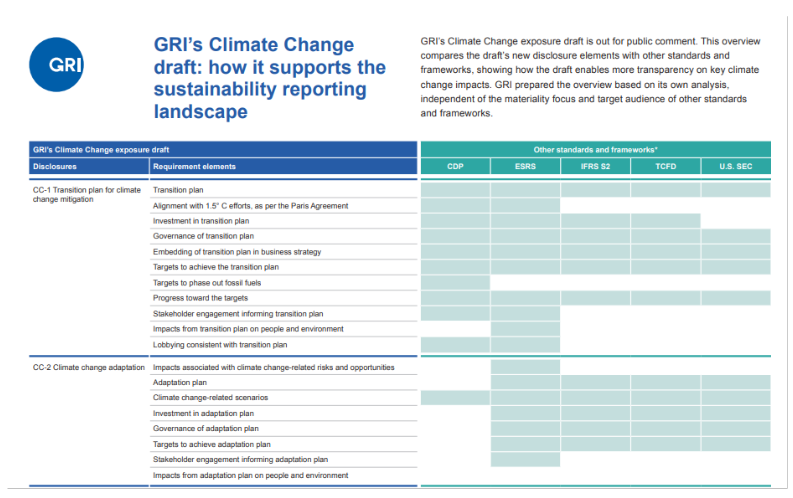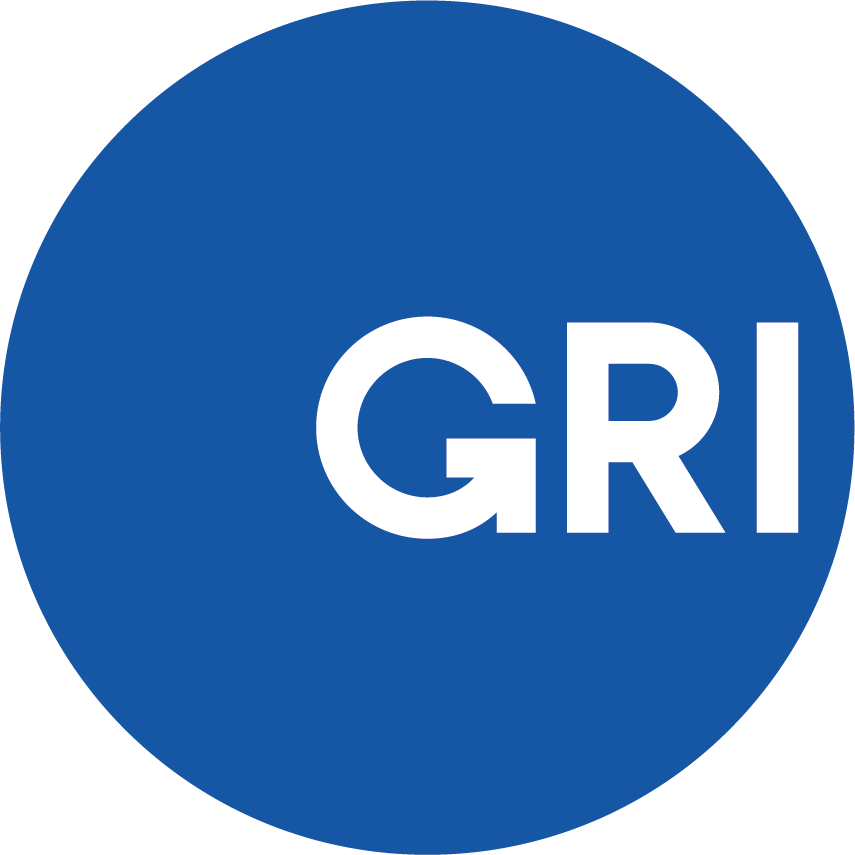Revising GRI Climate Change and Energy Standards To Integrate Input and Enhance Value for Stakeholders

The new GRI Climate Change and Energy Standards aim to be the blueprint for sustainability reporting on climate change-related impacts, with a broader perspective including impacts on people.
Why is the standard being revised?
The objective of the revision is to ensure that the GRI Standards continue to represent internationally agreed best practices, align with recent global regulatory developments, and incorporate the relevant authoritative intergovernmental instruments in the field of climate change, GHG emissions, and energy consumption. Notably, the Climate Change Standard integrates the latest insights from the ongoing GHG Protocol Standards and Guidance Update Process, benefitting from the expertise of the Global Director of the GHG Protocol Initiative (GHGP) at the World Resources Institute, who is a member of the Standard’s Technical Committee. Moreover, the exposure draft supports the sustainability reporting landscape, enabling more transparency on key climate change impacts.
Why is this significant?
GRI Standards are used by over 14,000 organizations, with wide adoption in major markets around the world. The revised content reflects the call of many stakeholders for more transparency on climate change reporting. The enhanced disclosures on climate change-related aspects empower organizations to publicly communicate their most significant impacts on climate change and how those are being addressed in a credible standardized way. The revision aims to augment transparency, organizational accountability, and decision-usefulness of the disclosures to internal and external stakeholders.
What are the changes?
The GRI climate change exposure draft includes new disclosures on transition and adaptation plans, just transition, GHG emissions reduction targets, GHG removals, and carbon credits. The GRI Energy exposure draft includes a new disclosure on energy policies and commitments. The exposure drafts also consider the interrelations of climate change with other sustainable development topics, such as biodiversity.
A distinctive feature of the GRI Climate Change exposure draft is its emphasis on the human aspect of climate change - something that is not stressed enough in the climate reporting landscape. It incorporates the concept of just transition, which focuses on greening the economy in a fair and inclusive way, creating decent work opportunities, and leaving no one behind. The draft contains a dedicated disclosure on just transition metrics. Finally, climate change and biodiversity are interrelated, as climate change is a major driver of loss of biodiversity, which, in turn, can accelerate climate change processes. Biodiversity is also referenced in several requirements throughout different disclosures.
Get Involved
The Climate Change and Energy Standard exposure drafts were made available for public comment on November 21st, 2023. The opportunity remains open until February 29th, 2024, for all stakeholders to submit their views and feedback, including on the drafts’ feasibility and completeness. You are encouraged to provide feedback through the online survey, available through the following link: Climate Change and Energy exposure drafts survey.
Additionally, GRI is running a webinar series around the roll-out of the Standards. GRI North America was pleased that 49% of the hundreds of attendees of the last global webinar were from the North American region. GRI will hold a Q&A webinar on the exposure drafts on January 24th at 11:00 AM (ET). Reserve your spot here.

